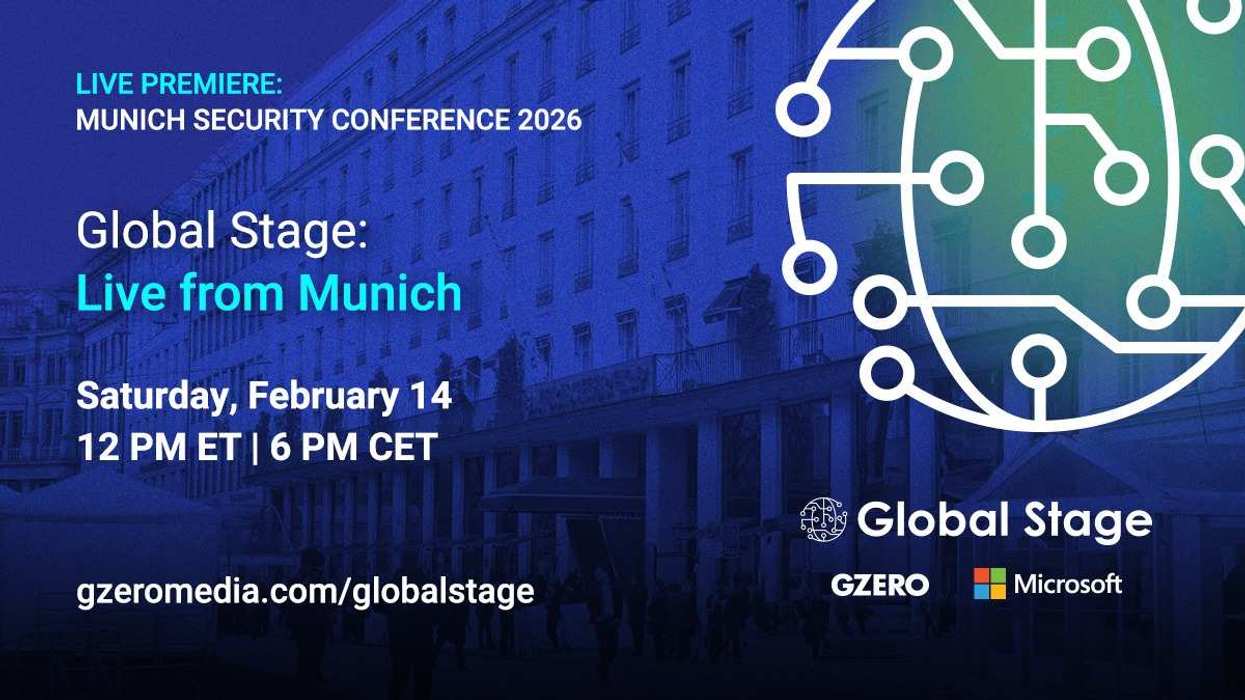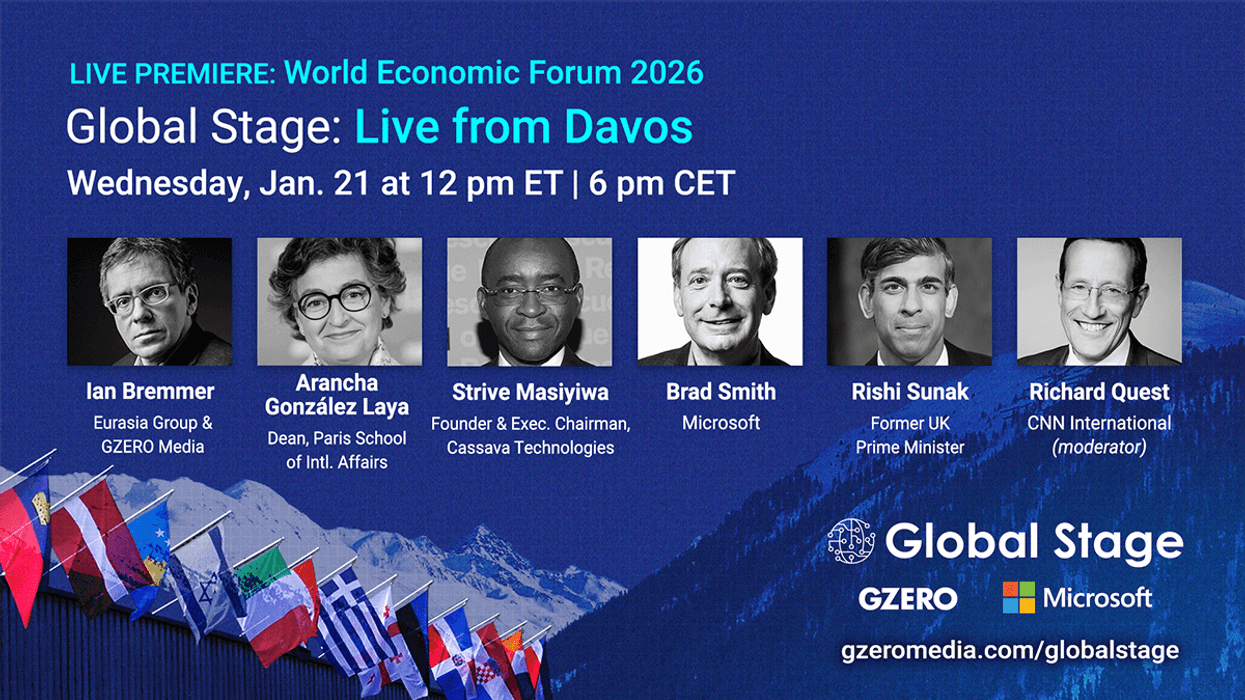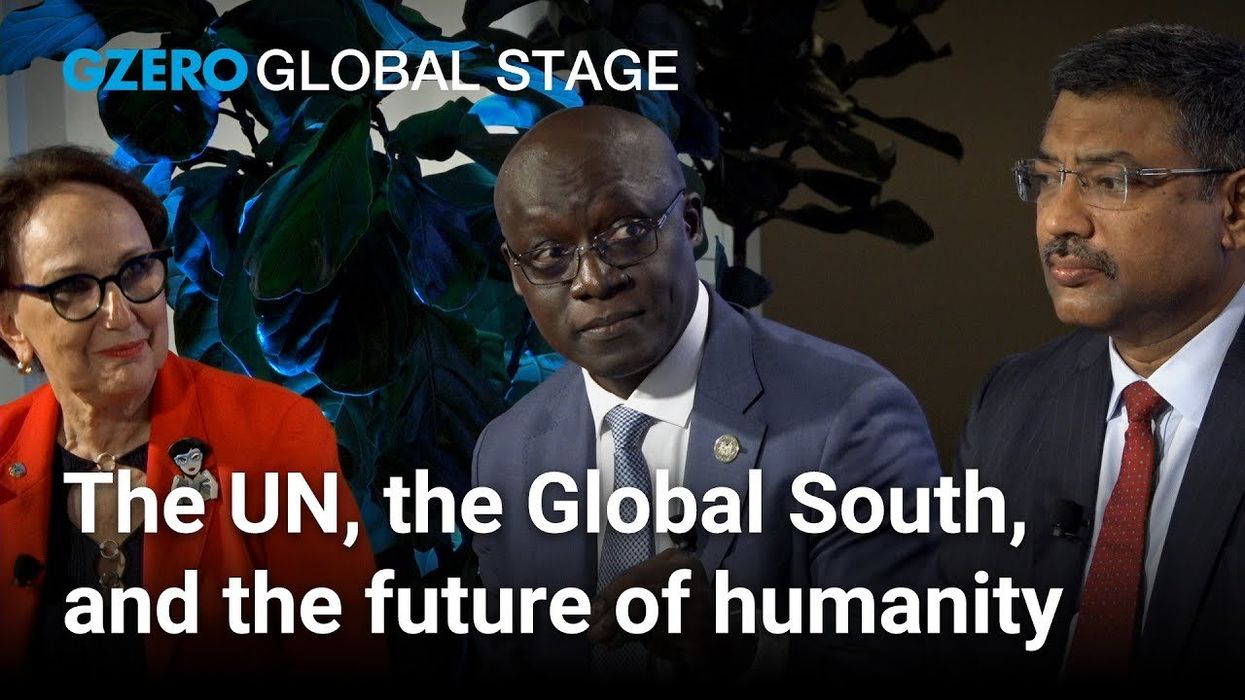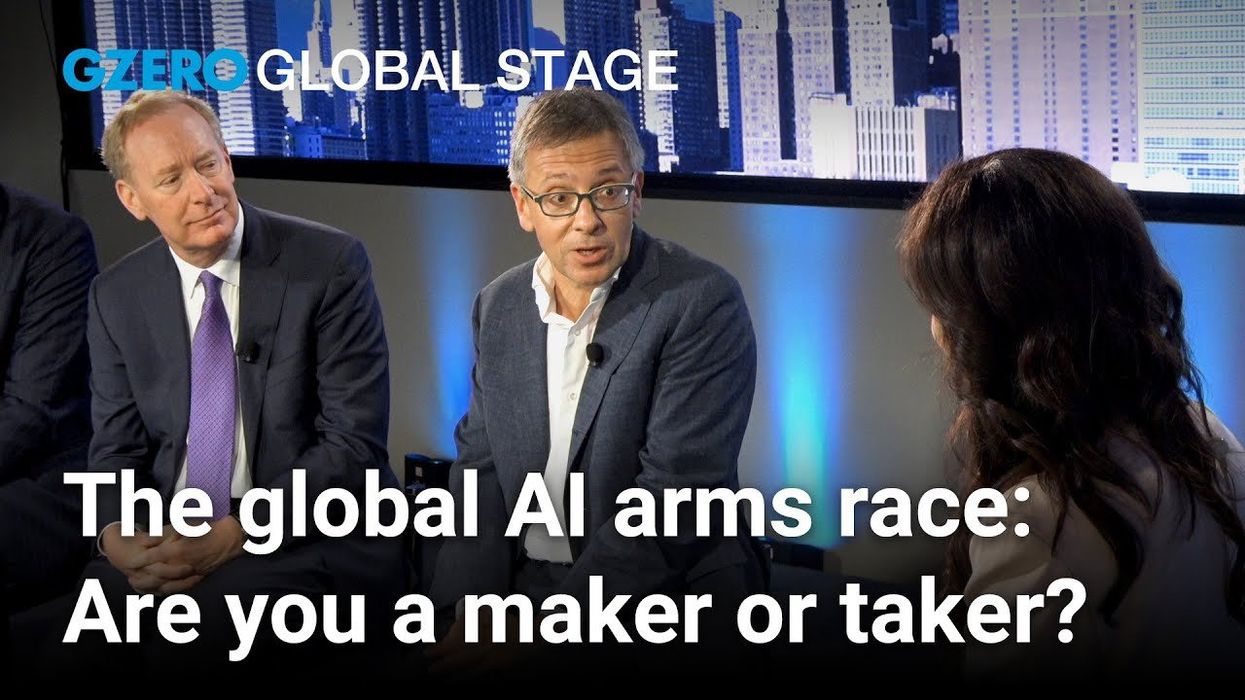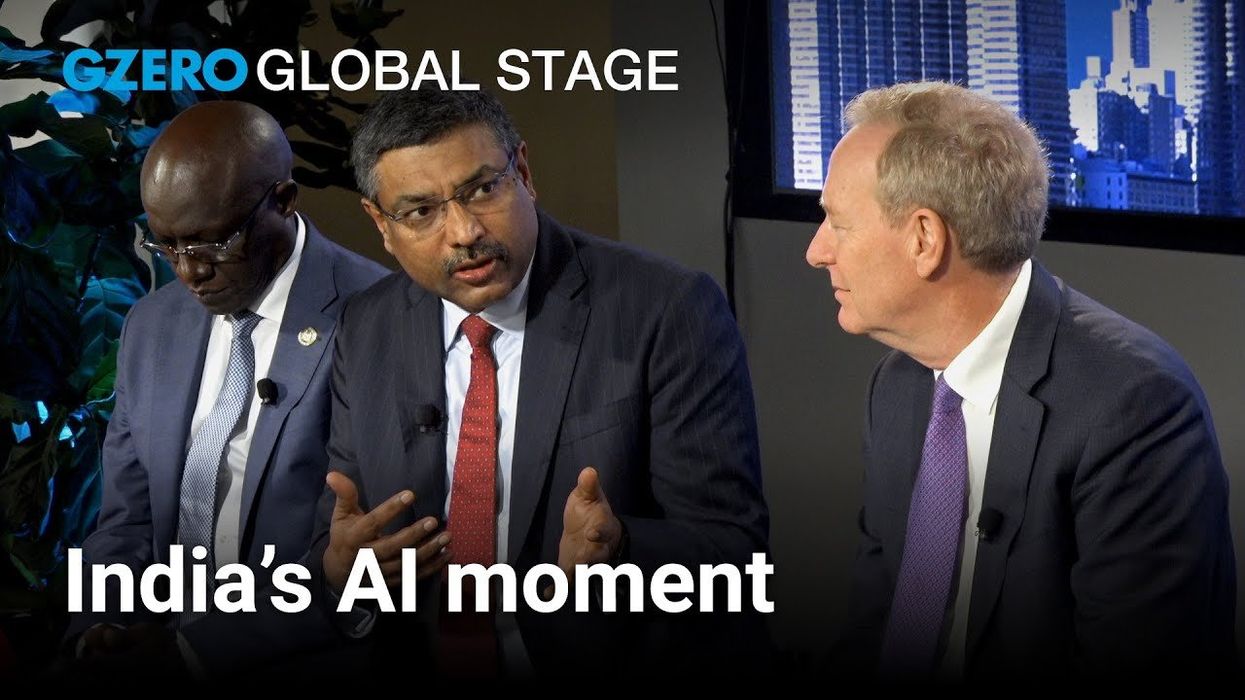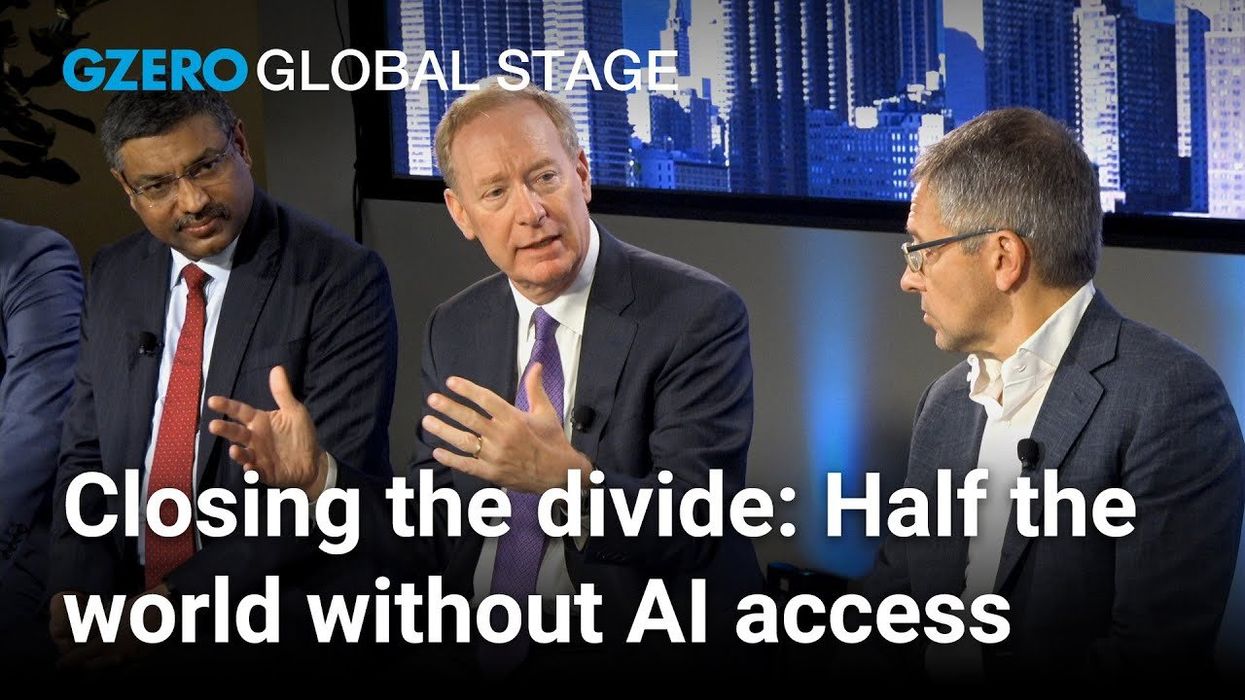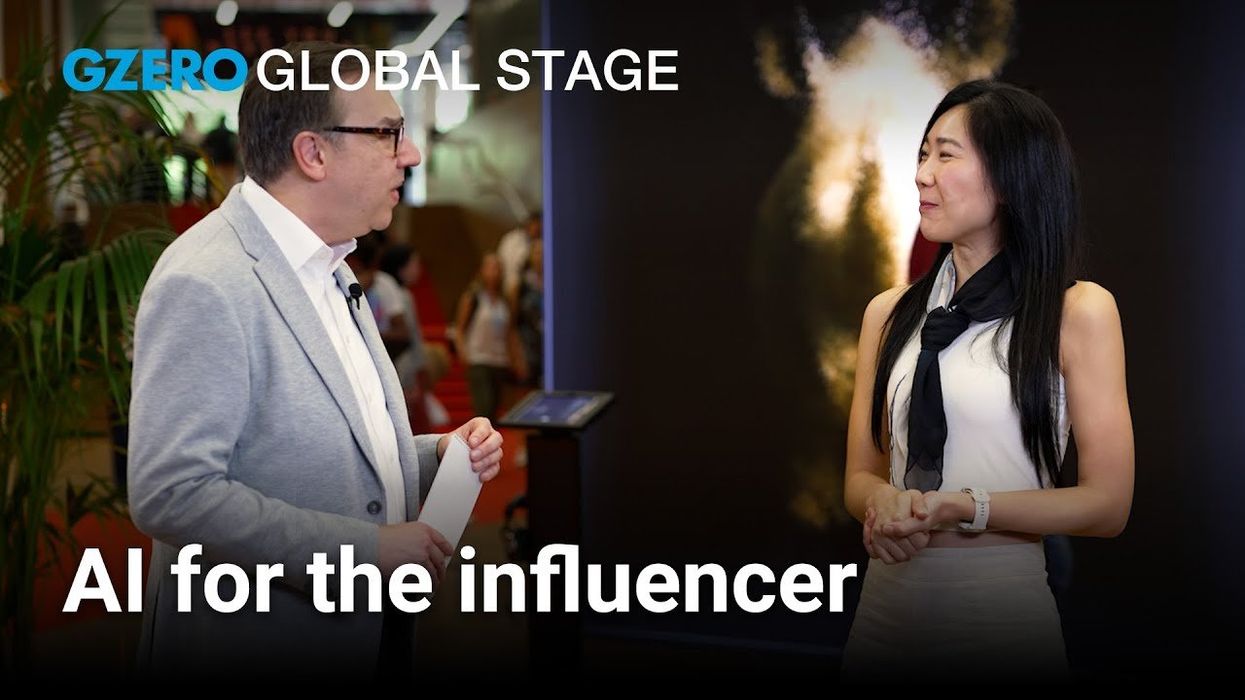Events
TODAY at 12 pm ET: Watch our Global Stage live premiere from the Munich Security Conference
Tune in today at 12pm ET/6pm CET for the live premiere of our Global Stage from the 2026 Munich Security Conference, where our panel of experts takes aim at the latest global security challenges. NY Times National Security Correspondent David Sanger moderates the discussion with Benedetta Berti, Secretary General, NATO Parliamentary Assembly; Ian Bremmer, President & Co-founder, Eurasia Group & GZERO Media; Dr. Wolfgang Dierker, Global Head of Government Affairs, SAP; and Brad Smith, Vice Chair & President, Microsoft.
Feb 13, 2026
